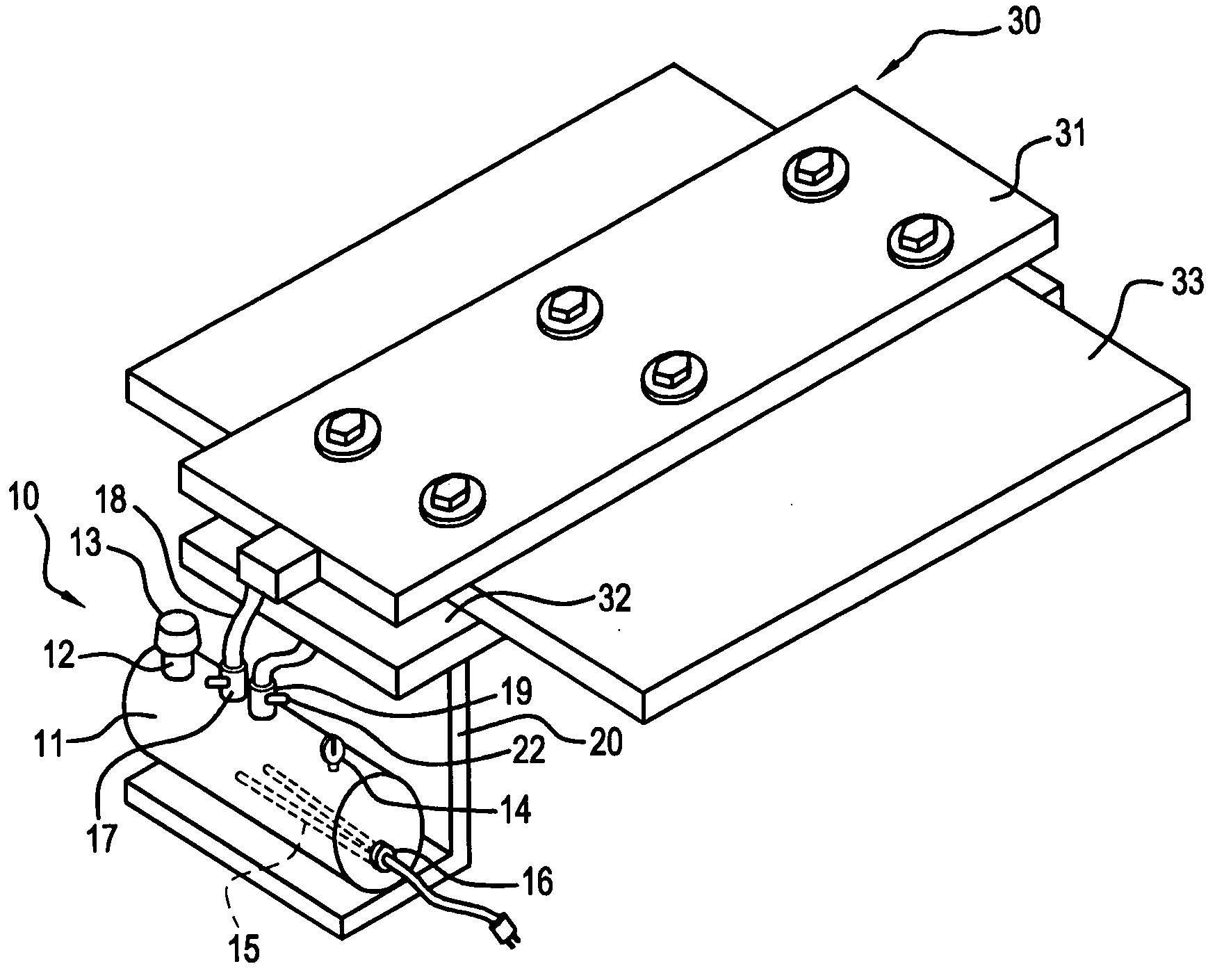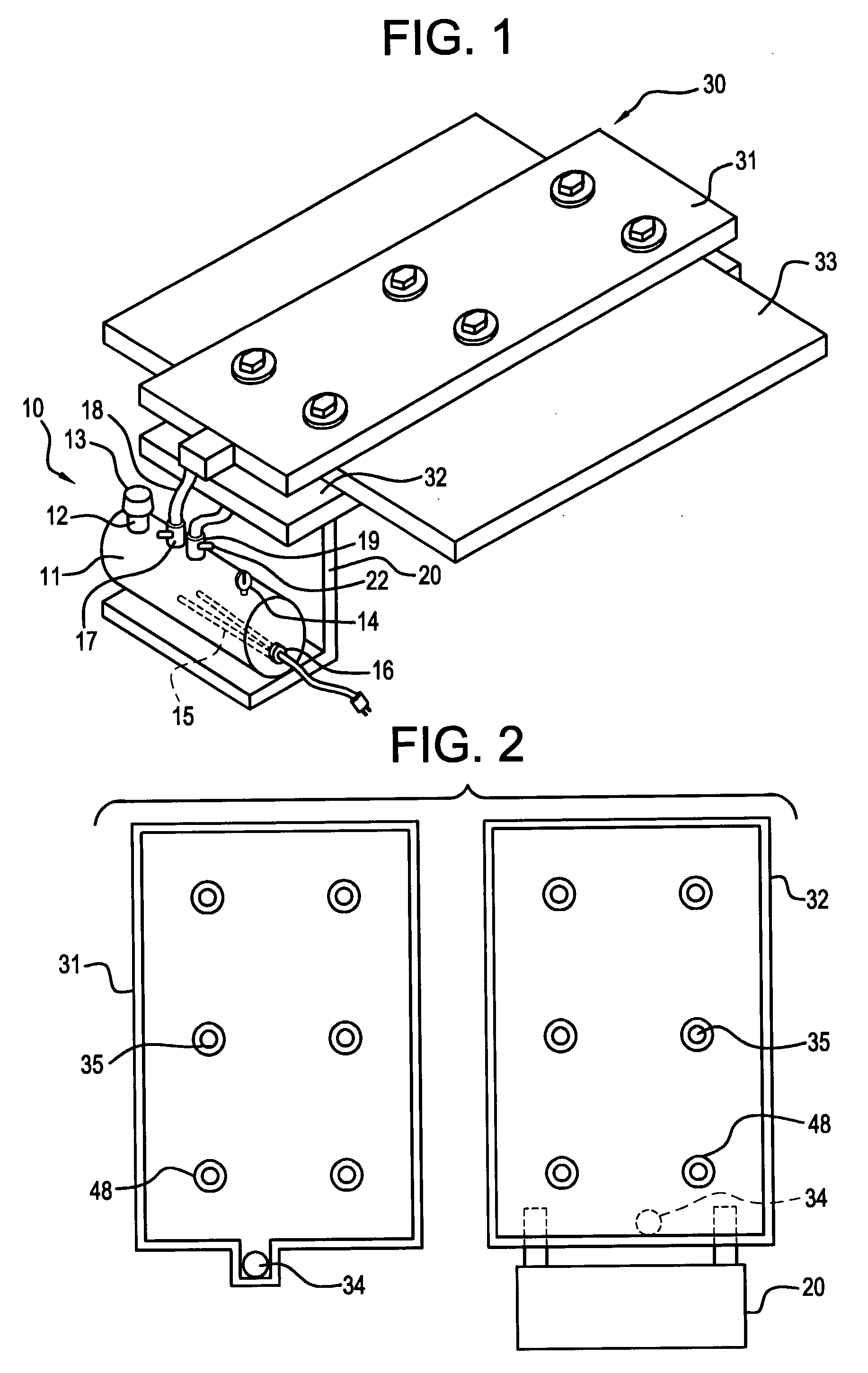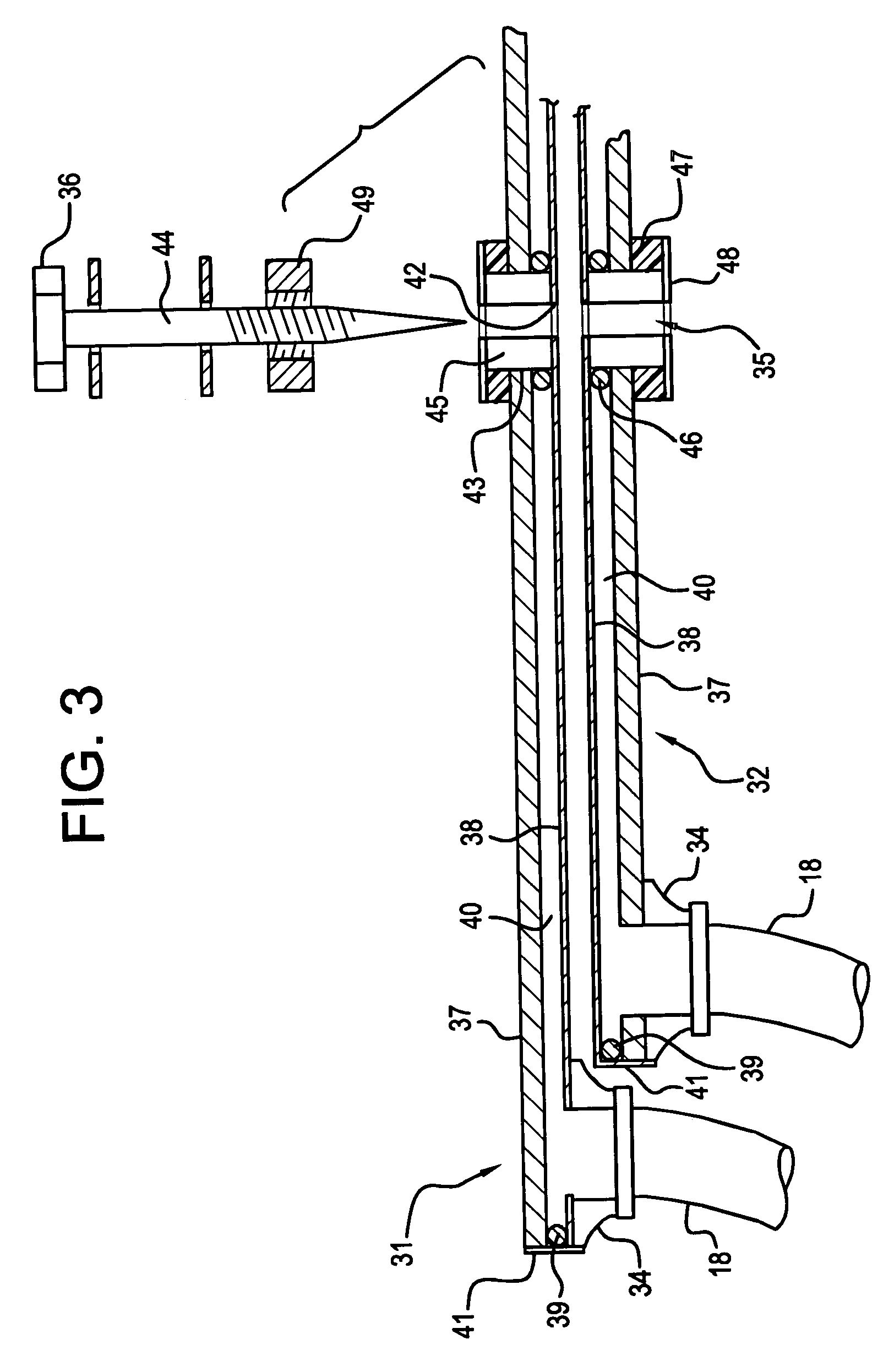Steam heated vulcanization apparatus
a technology of steam heating and vulcanizing apparatus, which is applied in the direction of dough shaping, manufacturing tools, other domestic objects, etc., can solve the problems of time-consuming operation, difficult to handle beams, and additional expenses incurred in paying the operator of such devices
- Summary
- Abstract
- Description
- Claims
- Application Information
AI Technical Summary
Benefits of technology
Problems solved by technology
Method used
Image
Examples
Embodiment Construction
[0033]Referring now to FIG. 1, the apparatus embodying the present invention includes a steam supply system 10 and a vulcanizing apparatus 30. The steam supply system 10 may be provided as an integral element as shown or it may be separate from the vulcanizing apparatus 30.
[0034]The steam supply system 10 includes a boiler 11 in which is contained a predetermined amount of water. A filler port 12 including an overpressure safety release valve 13 is provided for introduction of water to the boiler 11. The overpressure safety release valve is calibrated to open at a pressure higher than that required by the vulcanizing apparatus 30 but lower than that which would result in rupture of the boiler 11 or other components of the steam supply system 10 or the vulcanizing apparatus 30. A pressure gauge 14 provides the operator with a visual display of the steam pressure in the boiler 11.
[0035]Heat to convert the water to steam is preferably provided by immersible electrically operated calrod...
PUM
| Property | Measurement | Unit |
|---|---|---|
| Length | aaaaa | aaaaa |
| Pressure | aaaaa | aaaaa |
| Flexibility | aaaaa | aaaaa |
Abstract
Description
Claims
Application Information
 Login to View More
Login to View More - R&D
- Intellectual Property
- Life Sciences
- Materials
- Tech Scout
- Unparalleled Data Quality
- Higher Quality Content
- 60% Fewer Hallucinations
Browse by: Latest US Patents, China's latest patents, Technical Efficacy Thesaurus, Application Domain, Technology Topic, Popular Technical Reports.
© 2025 PatSnap. All rights reserved.Legal|Privacy policy|Modern Slavery Act Transparency Statement|Sitemap|About US| Contact US: help@patsnap.com



